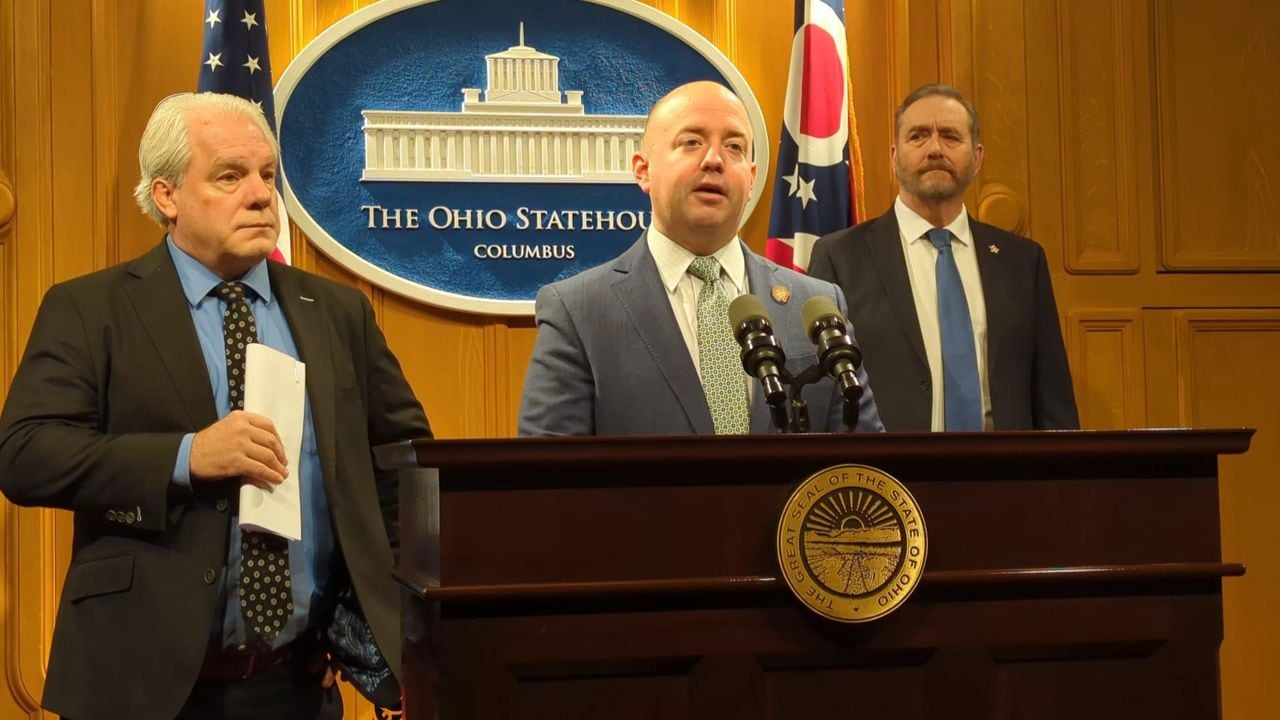Following nationâs first nitrogen gas execution in Alabama, Ohio looks to follow suit
Ohio state lawmakers on Tuesday introduced a bill that would allow nitrogen gas executions, a method recently used for the first time in Alabama.
Ohio hasn’t carried out an execution since 2018. Gov. Mike DeWine declared an unofficial moratorium in 2020 due to difficulty obtaining lethal injection drugs. American and European pharmaceutical companies refused to sell the drugs to states intending to use them for capital punishment.
“Saying that the law of Ohio should be thwarted because pharmaceutical companies don’t want to sell the chemicals is an abdication of the sovereignty of the state of Ohio, which still has this law on the books,” Ohio Attorney General David Yost said at a news conference Tuesday. Republican State Reps. Brian Stewart and Phil Plummer, sponsors of the Ohio bill, joined him.
Yost said nitrogen gas is widely available commercially and he has no worries the state would be able to obtain the amount necessary for executions.
The bill would give people on death row the option to choose either lethal injection or nitrogen gas but would require their executions to go forward with nitrogen gas if lethal injection drugs are not available.
It would also restate that manufacturers of lethal-injection drugs have legal immunity when such drugs are used in Ohio executions, according to state Rep. Josh Williams, a Republican co-sponsor of the bill.
The bill comes five days after Alabama carried out the nation’s first nitrogen gas execution. Officials promised Smith would be unconscious within minutes, but witnesses saw Smith physically struggle as the execution began.
Alabama officials claimed that the process was humane and effective, while critics called it cruel and experimental.
Yost said he is unconcerned that the method has been used only once or how it affected Smith as he died.
Anti-death penalty advocates in Ohio have pushed for a repeal of the death penalty altogether. Last year, they threw their support behind two bipartisan bills — Senate Bill 101 and House Bill 259 — that would replace the death penalty with a life sentence without the possibility of parole. Polling shows at least 56 percent of Ohians favor this. But, the bills haven’t made any progress since being referred to committees last year.
“I’m not surprised that our bill has only received two hearings but we’re looking forward to having more discussion as the year goes on,” Allison Cohen, executive director at Ohioans to Stop Executions said.
“I would say that trying to find a practical way to execute somebody is a conversation we’re not interested in having,” Cohen said. “It’s not just the execution itself, it’s the anticipation. Knowing when you’re going to die is part of what makes the death penalty so inhumane,” she said.
“There is no ‘practical’ or ‘humane’ way to execute somebody,” Cohen added.
Ohio currently has 118 inmates on death row.
